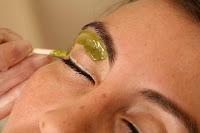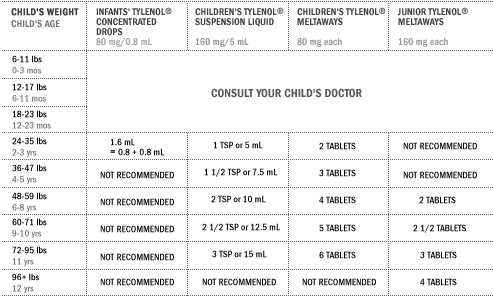In honor of mental health week, I thought that I would talk a little bit about anxiety: something that affects us all, in different ways, and totally different levels. We all face stress, and we all get some form of anxiety, and every single person has a different way of dealing with it…some healthy, and some not so healthy. I want people to know the difference between “normal” anxiety and “I really need some help” anxiety, and how we can treat it. Anxiety disorders can start as a child and be a lifetime battle, or it can crop up at any point in your life.
What are some symptoms of anxiety?
Restlessness, feeling “on edge”
Constant worry about issues (small or large)
irritability
Difficulty concentrating
Poor sleeping (unable to get to sleep OR waking up in the middle of the night and unable to get back to sleep- constant exhaustion)
Constant muscle pains/strains (i.e. that tension that might occur in your back, shoulders, etc)
Rapid heartbeat
Shortness of breath
Sweating
What can put you at a higher risk for anxiety disorders?
-Simply being a woman (gross!): women have a 2 times higher rate of anxiety than men
-Personality: Some personality types are more prone to be anxious (hello Type A! I’m not judging, I am a Typer A’er!)
-Genetics: If you come from a family of worriers and stressed out people, you are much more likely to sweat the small stuff.
-Trauma: Anyone who has survived a trauma (childhood, adult) as either a bystander OR someone directly involved in the event, you are much more likely to develop an anxiety disorder if you don’t get help to cope with the situation.
-Chronic Illness: If you have a chronic medical problem which can have flare-ups or cause you to require medical treatment on and off, it can be a constant stressor.
-Substance Abuse: The use of drugs and alcohol can make general anxiety disorders worse, but people try to use the drugs and alcohol to treat the anxiety,and it leads to a very unhealthy cycle of “self treatment”.
What can happen to me when I have an anxiety disorder?
-Chronic headaches
-Substance abuse
-Depression
-Insomnia
-Digestive difficulty
-Teeth grinding (TMJ)
What will my HCP be looking for?
Just like a medical diagnosis, with anxiety disorders there are some criteria that HCP’s are looking for to “diagnose” you with a general anxiety disorder:
-Excessive worry or anxiety about numerous events several days out of the week
-Difficulty controlling your feelings of worry
-Anxiety or worry that interferes with your activities of daily living
-Anxiety that isn’t related to another mental health condition (like Post Traumatic Stress Disorder, Depression, etc)
-And at least three of the following symptoms: insomnia, restlessness, fatigue, difficulty concentrating, irritability, muscle tension.
OK. SO what do we do? How do we treat this?
Alternative therapies:
-Exercise: Many studies have shown that daily exercise of 30 minutes (at least) can help reduce symptoms of anxiety and depression.
-Eat Healthy: cut out processed foods, fatty, and high sugar foods and add things that are high in Omega-3 fatty acids and Vitamin B
-Avoid Alcohol and other drugs: as I said before, they can make things worse!
-Use relaxation techniques: yoga, mediation, and take time for yourself to shut off your phone, TV, and all other stimulation if only for 20 minutes a day, or when anxiety is at it’s worst.
-Sleep: shut off your TV, set a bedtime, get into a routine to help your mind turn off.
-Kava*: can help to promote relaxation, but be careful if you have any liver disorders.
-Valerian*: It can help promote sleep and help with relaxation
*talk to your HCP before starting any new supplements!
Medications:
-Antidepressants: can help reduce anxiety and fight off the depressant hat can come with anxiety (i.e.Paxil, Zoloft, Effexor).
-Benzodiazepines: sedatives for SHORT-term relief of anxiety, they should only be used for anxiety attacks and for other sporadic treatment of anxiety, not every day and NOT for long-term use- they can make anxiety worse if taken long-term.
-Buspirone: Can take weeks to get full effect, but can be used for longterm or ongoing treatment of general anxiety disorders.
-Psychotherapy: AKA Talk therapy. For some people scheduling an hour a week of talking to someone who won;t judge you and can help to shape your behavior really works, and I suggest that anyone taking medication is also getting psychotherapy, they really enhance one another!
So many people have anxiety, we live in a high stress world, and I see people all the time that try to combat their stress with drugs and alcohol, because they don’t understand that what they are doing is self-“treating” their anxiety. And I see other people that end up completely breaking down from stress and unable to live their lives. In times of high stress, like a family member is sick, or you are tight for money, etc these things might happen for a few days/weeks. BUT is this your life? Am I describing things that you feel every single day? If so, you need to talk to your HCP to get help and it is not a sign of weakness, it is not something to be embarrassed about- EVERYONE needs a helping hand sometimes!If you have any of these symptoms, PLEASE GET HELP! If you know someone who needs help, urge them to go to their HCP, bring them to the Emergency Room if it is life threatening; just make sure that your love ones get treated and ask for help- there are tons of people out there to help and support you. You aren’t dealing with stress and anxiety alone, I promise, and it is nothing to be embarrassed about. Please talk to someone, and your HCP, and just tell them what you are going through, we can help you!
Yours in Good Health
B











